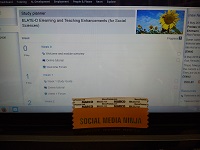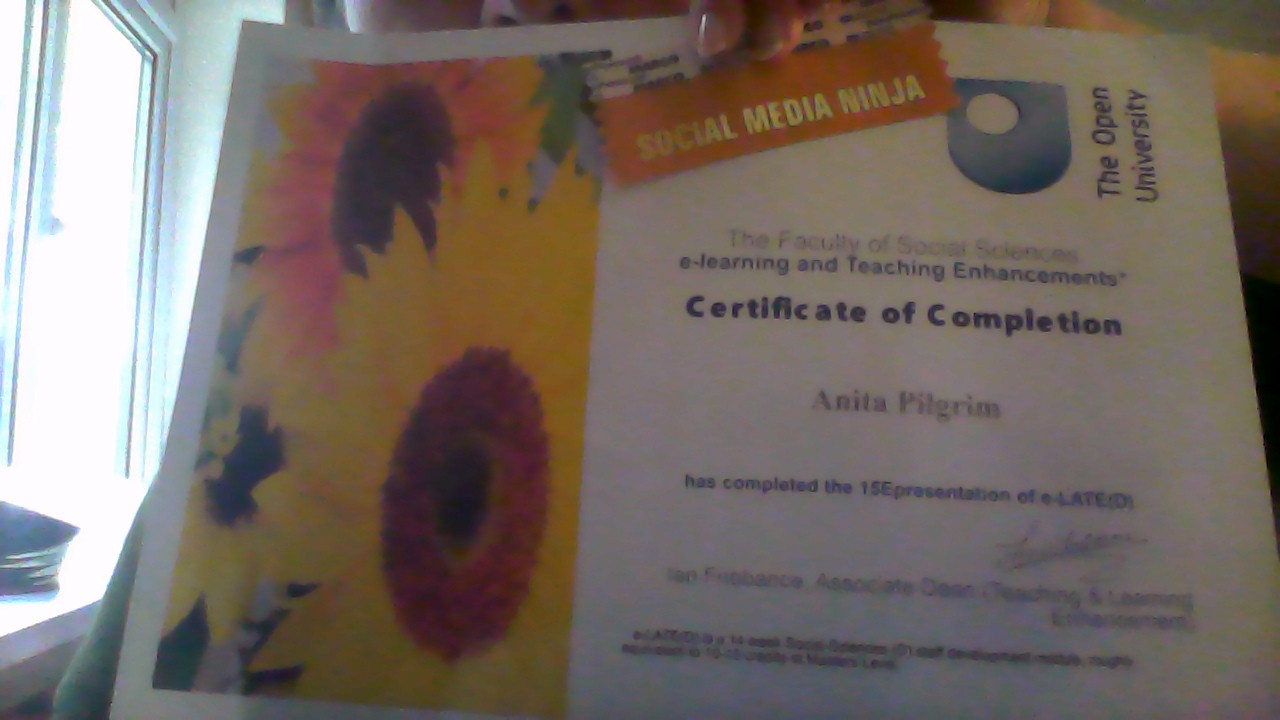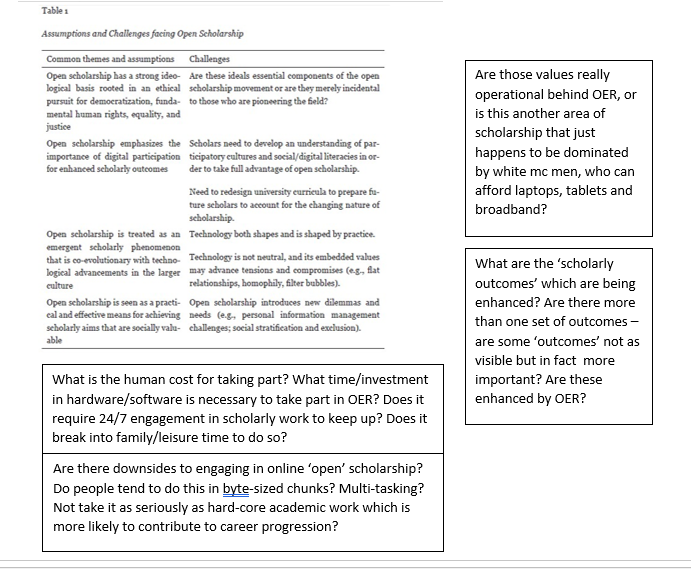Here we're asked to reflect on a previous learning experience. I'm going to use the studies I did on the eLATE(D) module, a 12 week course on e-learning (which I've written about on my Tutor's blog: https://learn1.open.ac.uk/mod/oublog/viewpost.php?post=162665).
- Experience: what was the context of the learning? What did you actually do during and after the learning experience? What else happened?
This was a professional development module I did two years ago. I had been very keen for a while to develop my online teaching skills. It was quite hard to find out about the courses which are available to Open University tutors to support our professional development, but one day I saw an email pop up about e(LATE)D, and hurriedly signed up to the course.
- Personal:
What was your perspective on the learning experience? How did you
perceive the situation? What were your assumptions and beliefs about the
situation?
I assumed that as I already had substantial experience in teaching online, this would be a rubber stamp for my knowledge. I would be able to 'prove' that I had those skills by pointing to my course certificate


I expected to cruise through the course without learning very much.
- Feelings: How did your feelings about the
learning experience change from anticipation through to completion? Did
you enjoy it? Did it make you uncertain, or nervous? If you found the
learning difficult, did this cause frustration? Which aspects of the
learning experience led to positive feelings, and which to negative? Did
other things affect your mood at the time, for example work or family
events? Did your feelings influence your intentions or change your
behaviour?
e(LATE)D was a much more interesting course than I had imagined it would be. It introduced me to a body of literature about online education which I had not realised existed. I was also forced to read pedagogic literature: literature about teaching, which I had never bothered to do in the past because a) I had very little time, b) I always get great feedback on my teaching so assumed I didn't need to do so. I don't say I learned a great deal about teaching, most of my reading confirmed that the way I teach is good practice, but the reading allowed me to reflect on my teaching practice, and to reference my thinking about it with more authority when talking about it.
I did learn a lot about online teaching. Much of this was because of an opportunity to discuss online teaching with others - to figure things out in conversation on forums and through submitted coursework, rather than just Carry On Online Teaching on my own.
There was a form to fill in at the start of the module which helped you to see if you would have enough time to do it. I didn't have enough time to fill that in, so I just signed up and got on with it

I was often frustrated by the lack of time I had to commit to my studies. I have substantial family commitments, and had to miss a couple of tutorials in order to give time to the family. I always meant to listen to the recordings of them, but I was so frustrated by missing out on them that I never managed to do this.
Many other tutors dropped out of the module as we went on. I hung on to the end, handing work in late and using forums - as I could post after the deadline on these. I often 'blurted' on forums, posting emoticons about trying to catch up.
- Critical stance: Reviewing your notes so far,
identify any assumptions you have made and ask if they are justified.
Are there other questions you could ask of yourself to deepen your
understanding of your learning?
I assumed my practical experience in teaching didn't require input from pedagogic literature.
I didn't realise how out of practice I am at writing up my work in the style of an academic paper.
I assumed I could speed through the module without engaging deeply in it, and do it more quickly than the allocated time provided for.
- Perspective: Were others
involved in this learning experience? If so, what might be their
perspective and what could you learn from this? Are you aware of
literature that relates to your experience, and if so how does it
relate? Is the social context important for your experience, and if so
how is it important? Is the historical context important for your
experience, and if so how is it important? Are ethics important for your
experience, and if so how are they important?
I was to get feedback from a peer on the course, and give feedback to another peer. I wrote up my experience of this on my blog:
https://learn1.open.ac.uk/mod/oublog/viewpost.php?post=162678. It was a lesson to me not only in terms of the feedback I got, but also in how students approach assignments! I am shocked when I think how cavalier I was about reading the carefully designed Student Notes which aim to support writing up of assignments

We were all also supposed to take part in forum discussions. I threw myself into these with enthusiasm, as I love forum posting. I was disappointed in how disengaged many of my colleagues seemed to be. I knew there were many of us on the module, and at the end I could see that there were a lot of people who just worked through without connecting with the rest of us on the forums. I have never quite understood whether other people just don't like forums? I do wonder sometimes if my enthusiastic style puts people off.
- Outcome:
What did you learn from the experience? And what have you learnt from
this activity about yourself as a learner? Are there implications for
your H818 studies? Would you do anything different in the future? Would
you continue to do the same or do it differently now? In either case say
why.
I learned that I can be an impatient learner, skipping sections of the study material and exercises which I think are beneath me. On H818, I plan to do the exercises as carefully as I can regardless. I don't have much more time these days than I did back then! but by humbly observing my own students, I have been able to see how the more successful ones plan and commit
time to their studies. I am always advising students that prioritising their studies doesn't mean they are putting their families second - children see us concentrating on our studies and do the same on their schoolwork. I learned to prioritise my own studies.
I remain very keen on forum usage as a means of learning/teaching. I shall carry on taking enthusiastic part, and ask for more feedback about my forum posting style on H818. (I have learned more about this on a three week Tutor Moderator course as well.) It's likely that I will look at forums for my project for H818.
I got a great perspective into what students actually do by being a student myself! and have been able to take this back into designing my teaching support.
I think I was a poor e(LATE)D student: skipping sections, filling in parts late, rushing my work, however I learned loads. I was able to build on the piece of work I wrote, and start developing it as an application for Fellowship of the Higher Education Academy (for various reasons not yet completed!). I learned that sometimes it can take a while, especially when you have other responsibilities in life. The main thing is to start your learning journey and focus on the learning, not the certificate.
Although I did feel very proud that I struggled through the course, and got my certificate in the end 


